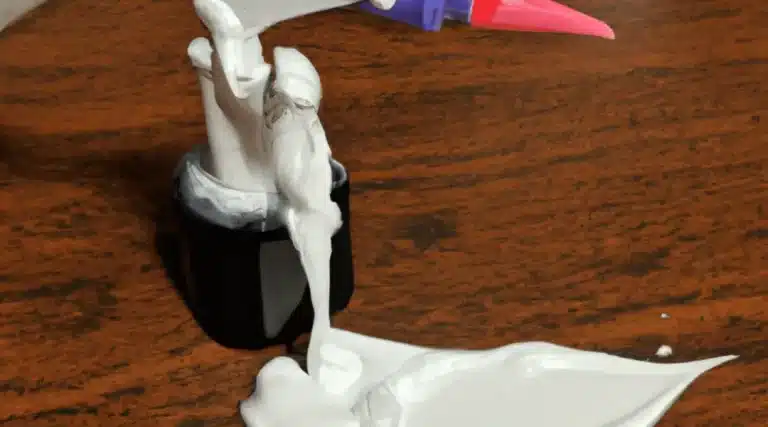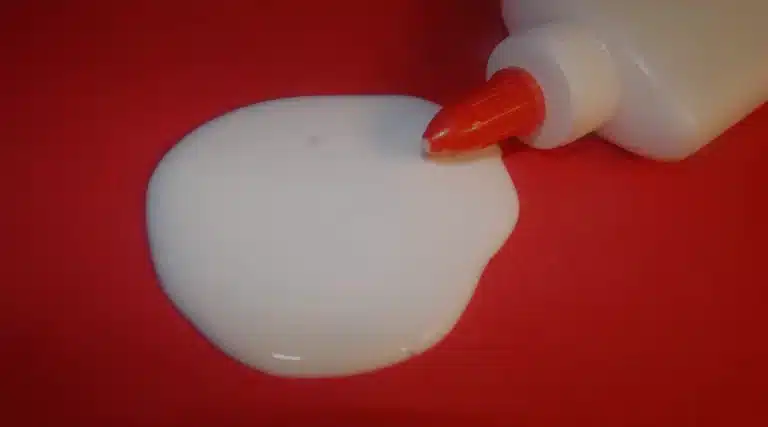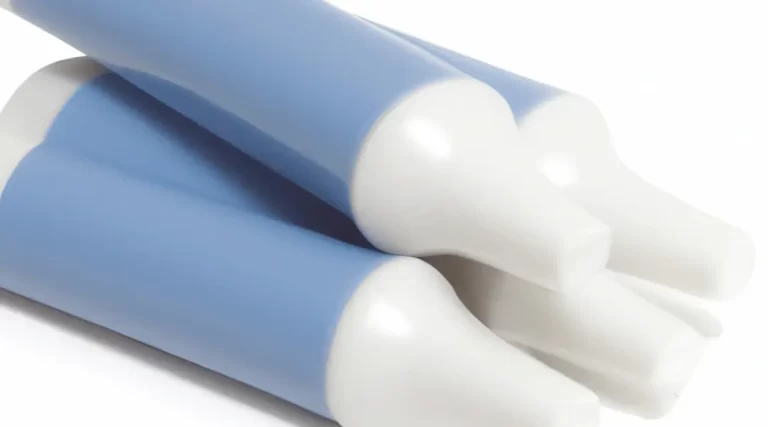Denture adhesive is an essential tool for individuals who rely on dentures to improve their dental functionality and appearance. However, the longevity of denture adhesive on teeth is a common concern for many users. Knowing how long denture adhesive typically lasts on teeth is crucial in ensuring optimal dental comfort and functionality.
This article aims to provide an informative overview of the factors that affect the longevity of denture adhesive on teeth, including the types of adhesive available, how they work, and the typical lifespan of each type.
Additionally, the article will provide guidance on how to apply denture adhesive, signs that adhesive needs to be reapplied, and tips for maximizing adhesive lifespan. By understanding the factors that influence the effectiveness of denture adhesive, individuals can make informed decisions that can help them enjoy greater dental comfort and freedom.
Types of Denture Adhesive
Different types of adhesives are available for securing dentures in place, each with varying levels of effectiveness and suitability for different types of dentures and dental needs.
One of the most common types is the cream adhesive, which is easy to apply and provides a strong hold for several hours. However, it may not be suitable for those with allergies to certain ingredients or those who prefer a more natural option.
Another type is the powder adhesive, which is also easy to apply and provides a longer-lasting hold than cream adhesive. However, it can be messy to use and may not work as well for those with dry mouth.
Choosing wisely between the different types of adhesives is important to ensure maximum comfort and effectiveness. Pros and cons of each type should be weighed against individual needs and preferences.
Understanding how denture adhesive works can also help in making an informed decision on which type to use.
How Denture Adhesive Works
Understanding the mechanism by which denture adhesive functions can provide valuable insights into the factors that influence its efficacy.
Denture adhesive works by creating a seal between the denture and the gums, which helps to keep the denture in place during daily activities such as eating and talking.
The adhesive contains ingredients such as carboxymethylcellulose and polyvinylacetate, which work together to create a sticky surface that adheres to the denture and the gums.
Benefits of denture adhesive include improved stability and retention of the denture, which can help to prevent discomfort and sore spots.
Additionally, using denture adhesive can help to improve oral health by reducing the risk of food particles getting trapped between the denture and the gums, which can lead to bacterial growth and infection.
However, the longevity of denture adhesive can be affected by several factors, including the amount of adhesive used, the quality of the adhesive, and the type of food consumed.
Transitioning into the subsequent section, it is important to understand these factors to ensure that denture adhesive is used effectively.
Factors Affecting Adhesive Longevity
Just as the stability of a ship is influenced by the quality of its anchor and the intensity of the storm, the longevity of a denture adhesive is affected by various factors such as the amount and quality of the adhesive used, the type of food consumed, and the overall oral health of the wearer.
Environmental conditions such as humidity and temperature can also impact the adhesive’s effectiveness. High humidity can cause the adhesive to break down more quickly, while extreme temperatures can cause it to become too hard or too soft.
Additionally, maintaining good oral hygiene is crucial for the longevity of denture adhesive. Bacteria and food particles that are not properly removed from the mouth can weaken the adhesive and cause it to deteriorate more quickly. Therefore, it is important for denture wearers to brush their teeth and gums thoroughly before applying the adhesive.
With these factors in mind, it is important to understand the typical lifespan of denture adhesive.
Typical Lifespan of Denture Adhesive
The duration of effectiveness for denture adhesive is influenced by various factors, including environmental conditions, oral hygiene, and the quality of the adhesive used.
The typical lifespan of denture adhesive varies from person to person, but on average, it can last anywhere from 6 to 12 hours. However, factors such as eating, drinking, and talking can affect the longevity of the adhesive.
It’s important to note that while there are many benefits to using denture adhesive, there are also some drawbacks, such as the cost and the potential for irritation or allergic reactions. When comparing the cost of denture adhesive to other alternatives, it’s important to consider the long-term expenses associated with denture care.
Overall, denture adhesive can be a helpful tool for those who wear dentures, but it’s important to weigh the pros and cons before deciding to use it.
As for applying denture adhesive, there are several techniques that can help ensure maximum effectiveness and longevity.
How to Apply Denture Adhesive
Applying denture adhesive is a crucial step in ensuring maximum effectiveness and longevity of dentures, and can be done successfully by following a few simple steps.
Firstly, it is important to thoroughly clean and dry the dentures before applying the adhesive.
Secondly, a small amount of adhesive should be applied evenly on the denture surface, taking care to avoid excess application that can cause irritation or discomfort. It is worth noting that a patient with dry mouth may need to use a bit more adhesive to ensure proper adhesion throughout the day.
Removing denture adhesive residues is also an important step to take, and can be done by using a denture brush and warm water.
By following these techniques, denture wearers can ensure a comfortable and secure fit for their dentures.
In the next section, we will discuss the signs that adhesive needs to be reapplied.
Signs That Adhesive Needs to be Reapplied
This section discusses the indicators that signify the need for denture adhesive to be reapplied, which can aid denture wearers in maintaining an optimal fit and maximum comfort.
Reapplication indicators include the dentures feeling loose or slipping during eating or speaking, discomfort or soreness in the gums, and difficulty in chewing or biting. These signs may indicate that the adhesive is losing its effectiveness and needs to be reapplied.
It is important to note that using too much adhesive can also cause discomfort and difficulty in removing the dentures. Therefore, it is essential to find the right balance in the amount of adhesive used.
Being aware of these reapplication indicators can help denture wearers maintain a comfortable fit and prevent denture-related problems. Moving forward, the next section will provide tips for maximizing adhesive lifespan without compromising comfort.
Tips for Maximizing Adhesive Lifespan
Maximizing the lifespan of denture adhesive is crucial for maintaining comfort, as improper usage can lead to discomfort and difficulty in removing the dentures. Interestingly, a study found that using too much adhesive can decrease the effectiveness of adhesion and increase the risk of irritation.
To ensure maximum adhesion, it is important to store the adhesive in a cool, dry place to prevent it from drying out or becoming too wet. Additionally, it is important to follow the recommended removal techniques, which typically involve using warm water and gentle pressure to loosen the denture before removing it.
By following these tips, individuals can ensure that their denture adhesive lasts as long as possible, providing maximum comfort and ease of use.
Conclusion
Denture adhesive is an important tool for those who wear dentures. It helps to keep the dentures in place and prevent them from slipping or moving around. There are several types of denture adhesive available, including creams, powders, and strips.
While the longevity of denture adhesive varies depending on several factors, such as the type of adhesive used and the wearer’s diet and oral hygiene habits, it typically lasts between 4 and 12 hours. The key to maximizing the lifespan of denture adhesive is proper application.
It is important to clean and dry the dentures thoroughly before applying the adhesive. A small amount of adhesive should be applied to the denture’s surface, being careful not to apply too much, as this can cause the adhesive to ooze out and become less effective. Signs that the adhesive needs to be reapplied include discomfort, slippage, and difficulty speaking or eating.
In conclusion, denture adhesive is an essential tool for those who wear dentures. While the lifespan of the adhesive can vary, proper application and oral hygiene can help to ensure that it lasts as long as possible. As the famous proverb goes, ‘Prevention is better than cure.’ Therefore, regular check-ups with a dental professional and following their advice can help to ensure a comfortable and confident denture-wearing experience.




